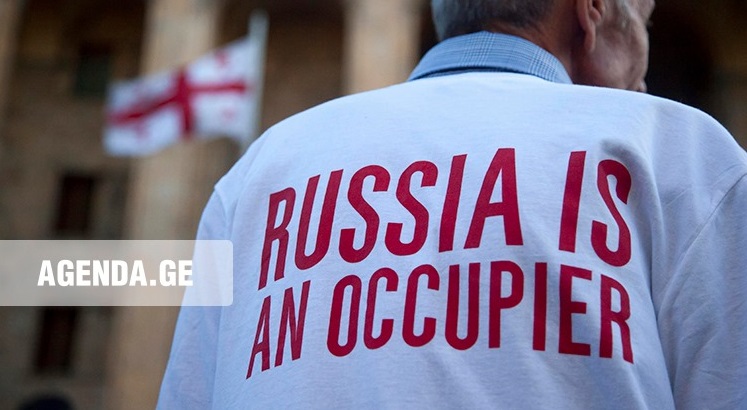Georgian officials highlight “historic” ECHR ruling on human rights toll of Russia's occupation in Georgia

The ECHR found violations of the articles of right to life, prohibition of inhuman or degrading treatment, right to liberty and security, right to respect for private and family life, protection of property, right to education and freedom of movement of the European Convention on Human Rights by the de facto authorities in the regions. Photo: Nino Alavidze/Agenda.ge
Georgian officials on Tuesday highlighted the “historic and powerful” decision of the European Court of Human Rights, which held unanimously that there were “multiple violations” committed by Russian-controlled forces in Georgia’s occupied regions.
The ECHR earlier today announced its decision on the case, submitted by Georgia on the human rights toll of hardening of occupation lines following the 2008 war between the two countries, and said it showed effects of ‘borderisation’ - a process in place since 2009 that had prevented people from freely crossing administrative boundary lines between Georgian-controlled territory and the occupied regions of Abkhazia and South Ossetia.
In his social media post, Georgian Parliament Speaker Shalva Papuashvili called today’s announcement of the ECHR’s decision “symbolic” as it came on April 9, the day of the violent dispersal of a peaceful protest by Soviet forces in 1989 in Tbilisi that had killed 21 individuals and injured hundreds.
Papuashvili noted the decision was a “powerful tool” for the restoration of “historical justice”, de-occupation and “liberation” of Georgia’s Russian-occupied territories, stressing it was “another international legal victory against Russia, achieved by the tireless efforts of the Government”.
On this symbolic day, Georgia took another big step towards the final victory, which is called the complete de-occupation of our country”, Justice Minister Rati Bregadze said in his comments and emphasised Georgia’s “many victories” against Russia since 2012, adding all cases filed against Georgia were excluded from the proceedings of the Court.
He pointed out that the ECHR’s decision once again confirmed the territorial integrity of Georgia and the illegality of the ‘borderisation’, and extended his gratitude towards everyone involved in the case.
In his turn, the Public Defender of the country Levan Ioseliani highlighted “another great victory for Georgia in the international arena” and the importance of the decision in light of the challenges still facing the people living in the occupied territories.
It is important that the European Court directly emphasised Russia’s responsibility [in the case]”, Ioseliani stressed, citing the “unfortunate” continuous practice of illegal detention and ill-treatment of Georgian citizens in Russia-occupied regions.
Deputy Justice Minister Beka Dzamashvili said today’s ruling of the Strasbourg Court pointed out ‘borderisation’ as “one of the heaviest legacies” left to Georgia after the 2008 war, which resulted in human rights violations of ethnic Georgians “on a daily basis”, adding Russia had violated the rights both during and after the war.
It is important that the Court confirmed that Abkhazia and Tskhinvali (South Ossetia) regions are “an integral part” of Georgia, Dzamashvili added.
The ECHR found violations of the articles of right to life, prohibition of inhuman or degrading treatment, right to liberty and security, right to respect for private and family life, protection of property, right to education and freedom of movement of the European Convention on Human Rights by the de facto authorities in the regions.
 Tweet
Tweet  Share
Share